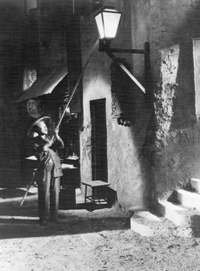'Interview with Cathy Wassell from Kinokuniya, Kino News, December 2010
How difficult was it to gain access to the files relating to the Mao years?
Ten years ago it would have been unimaginable to gain access to party archives on the Mao era. Even today the archives are strictly controlled, and the most sensitive material remains behind lock and key. But research is easier now, and with a lot of patience and persistence, as well as a bit of luck and some goodwill from the archivists, a lot of stunning material and some true gems can be discovered. Over a period of four years, I spent about seven months trawling through archives, although in some places access to the files was not granted.
You have written many books on China previously. Did you find out things that surprised you?
I started my career as a historian of China more than twenty years ago, and at the time I quickly realised that rigourous research on the Mao era was simply out of the question. So I decided to capitalise on the gradual opening of material on pre-1949 instead: what I discovered is that republican China from 1911 to 1949 was a vibrant, open and cosmopolitan society rather than a state of decay that called for revolutionary action (I illustrate this in The Age of Openness: China before Mao). And just as surprising was the discovery, once I started working on post-1949, of the routine nature of chaos, violence and destruction. Far from being confined to the Cultural Revolution (1966-1969) alone, as I had imagined, it was part and parcel of daily life throughout the Maoist era, and most pronounced during the Great Famine of 1958 to 1962.
What were the most surprising aspects to emerge?
If I had to summarise a quarter of a century of research I would say that what surprised me most was the contrast between how global and sophisticated a player China had become on the world stage before 1949 and the scope of the subsequent destruction of culture, religion, trade and society ─ not to mention the premature deaths of tens of millions of human beings ─ under communist rule. Mao's Great Famine must count as the largest enterprise of self-destruction in human history.
It must have been upsetting to formulate a picture of such devastation in four years. What kind of picture emerged and how did you deal with writing about it?
What I discovered, bit by bit, were layers of unfolding horror, from forced labour on irrigation projects, houses pulverised to make fertiliser, floorboards and window frames ripped out to feed backyard furnaces, thin gruel handed out by the spoonful in collective canteens, pregnant women forced to work in the fields in the middle of winter, villagers reduced to eating the straw from their huts all the way to cadres chopping off ears and noses or burying people alive as a form of punishment. What I tried to do in the book is gradually to reveal these different layers in all their complexity, starting with what happened in the corridors of power in Beijing before moving on to how ordinary people actually coped with the catastrophe, for instance by hiding, stealing, foraging, smuggling, tricking, manipulating or otherwise outwitting the state. Only at the end of the book, in Part Six called Ways of Dying, is the reader confronted with the full scale of death.
Have you managed to speak to many people who lived through that period themselves?
I trained a team of interviewers who actually spoke with people from the same social background, in their own dialect, sometimes from the same village or even the same family. Some of these interviews are very moving, for instance when an old man quietly sobbed as he recounted how as a young boy he was forced to flog a grandmother, tied up in the village temple for having taken wood from the forest. About a hundred interviews were collected, although the bulk of the evidence still comes from the archives.
You are currently based in Hong Kong. Have the Chinese authorities allowed the book to be published in China?
A translation in complex Chinese characters is currently being undertaken by The New Century Press in Hong Kong, which also published the memoirs of Zhao Ziyang, and I very much hope the book will be on sale in China.
Do you anticipate central records for this period ever being made available? What comes next?
If anything, access to the archives has become even more difficult in the wake of the Olympics, not to mention the hermetically sealed central records in Beijing, so I am not very hopeful, but things can change very quickly. I am now working on a prequel that looks at what "liberation" meant to people of all walks of life from 1948 to 1957.
